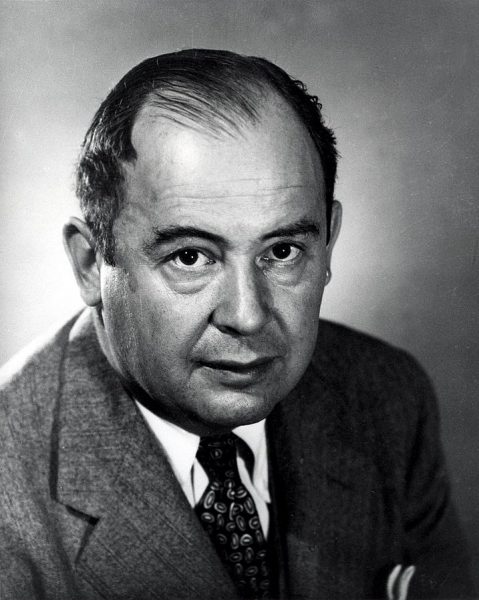Introduction
John von Neumann was a remarkable polymath whose contributions spanned mathematics, physics, economics, computer science, and more.
His wisdom, much of it deeply ahead of his time, still resonates in areas as diverse as artificial intelligence, game theory, and global strategy.
Below are some key insights from von Neumann’s thinking:
Pioneering Game Theory and Strategic Thinking
Von Neumann co-founded game theory, introducing it as a mathematical framework for understanding strategic interactions, especially in competitive or adversarial settings. His work in this field, particularly with economist Oskar Morgenstern, led to the creation of the “minimax theorem” for two-player zero-sum games, influencing economics, military strategy, and social sciences
His focus on strategic decision-making highlighted the importance of anticipating others’ actions and considering not only immediate outcomes but also longer-term impacts—wisdom that’s applicable from diplomacy to everyday problem-solving.
Emphasis on Mathematical Rigor
Von Neumann’s approach to problems was marked by an insistence on mathematical rigor. His breakthroughs in fields like quantum mechanics and set theory were fueled by his deep understanding of abstract mathematics and a belief that precise mathematical modeling could solve practical issues.
He taught that rigorous thinking and intellectual discipline are essential for understanding complex systems. His influence is especially felt in fields requiring high precision, such as computer science and economics, where exactness is critical for reliable outcomes.
Inventing the Modern Computer Architecture
Von Neumann’s concept of the stored-program computer (known as the “von Neumann architecture”) is the basis of nearly all modern computing. He proposed that a computer’s program could be stored in memory and altered during execution, allowing for unprecedented flexibility in computing.
This idea reshaped human interaction with information, leading to the computer revolution. His foresight about the potential of computing highlights the importance of envisioning the full capabilities of technology before it fully arrives, a lesson still relevant as we develop fields like AI and quantum computing.
Predicting the Power and Perils of Automation and AI
Von Neumann anticipated the implications of automation and artificial intelligence decades before they became mainstream. He warned of the social and ethical impacts of machines capable of decision-making, foreshadowing today’s debates about AI safety and the displacement of human labour
His perspective reminds us of the need to consider not just the technical achievements of AI but also their societal impact. His warnings underscore the importance of balancing technological progress with ethical and humanitarian considerations.
Thinking in Terms of Complex Systems and Unpredictability
Von Neumann was keenly aware of the unpredictability inherent in complex systems, whether in weather prediction or nuclear deterrence. He helped develop early models of computing-based weather forecasting and believed that unpredictability and sensitivity to initial conditions are fundamental traits of complex systems.
His work on the unpredictability of complex systems encourages a mindset that embraces uncertainty and complexity. This perspective is valuable for fields like economics, environmental science, and public policy, where systems are interconnected and predictions are uncertain.
Foundational Role in Quantum Mechanics and Operator Theory
Von Neumann’s work on quantum mechanics, particularly his development of operator theory, provided a mathematical foundation for quantum theory. He addressed complex questions about the nature of measurement and observation in quantum mechanics, paving the way for later developments in the field.
His contributions remind us of the necessity to address foundational questions before progressing in any field. By rigorously defining and understanding the fundamentals, he taught that a solid foundation allows for more meaningful exploration and discovery.
Recognizing the Double-Edged Nature of Science and Technology
During his work on the Manhattan Project and the development of nuclear weapons, von Neumann recognized the paradoxical nature of scientific progress: it could yield both powerful advancements and existential threats. His insights contributed to early thinking about deterrence and mutually assured destruction during the Cold War.
Von Neumann’s reflections on nuclear strategy remind us that scientific and technological progress always involves ethical responsibilities. With each innovation comes the need for caution, restraint, and foresight to prevent harm.
Vision for the Future of Humanity and Global Challenges
Von Neumann had a visionary understanding of global challenges, especially concerning the environment, resources, and technological risks. His concept of the “singularity” predates the modern idea of a technological singularity where artificial intelligence or advanced technology could lead to unprecedented change.
He emphasized that humanity’s future relies on careful navigation of technological and ecological challenges, a perspective that feels increasingly relevant as we face climate change, resource scarcity, and rapid technological evolution.
To summarise
Von Neumann’s wisdom is more relevant than ever in our interconnected, technology-driven world.
His insights encourage us to approach problems with strategic thinking, mathematical rigor, and a profound respect for the unforeseen consequences of our actions.
His legacy is a call to harness intellect not only for innovation but also for the ethical stewardship of human progress.


Recent Comments